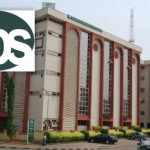
Telecom operators in Nigeria may reduce energy costs by as much as 50 per cent by shifting to solar power, according to a recent report by GSMA, the global industry body for telecommunications.
The document, titled “Rural Renewal: Telcos and Sustainable Energy in Africa,” pinpointed the potential savings telecom operators could achieve by moving away from diesel generators widely used in rural areas due to unreliable grid electricity.
The report revealed that around 85 million people in Nigeria—43 per cent of the population—lack access to grid electricity, particularly in rural regions where diesel generators dominate.
It noted that the country’s national grid, with a capacity of over 12,500 megawatts, operates at just 3,500 – 5,000MW due to infrastructure issues.
As a result, the report suggests, telecom operators with around 30,000 towers are forced to rely heavily on diesel, driving up energy costs and contributing to environmental concerns.
The GSMA report further explained that Nigeria’s telecom sector, which serves approximately 120 million mobile subscribers, consumes a substantial amount of energy, making it one of the key sectors affected by the country’s power challenges.
Transitioning to renewable energy, particularly solar, would not only reduce costs but also align with the global sustainability goals and Nigeria’s ambitions for greener energy.
“The country’s solar energy potential is high, receiving an average of 5.5 kWh/m2/day. For telecom operators, renewable energy offers cost savings of 30–50 per cent and significantly reduces carbon emissions, aligning with corporate sustainability and Nigeria’s climate goals,” the report stated.
Despite the clear advantages, the GSMA report acknowledged the high upfront costs of installing renewable energy systems, including solar panels and batteries, as well as the limited policy incentives and underdeveloped regulatory frameworks, which have slowed adoption.
It also noted that integrating renewable energy into existing telecom infrastructure, especially in remote areas, remains a challenge, with most projects still in the pilot phase.
The report pointed to the Nigeria Distributed Access through Renewable Energy Scale-up project, which was approved by the World Bank to address these challenges.
The project aimed to provide more than 17.5 million Nigerians with improved access to electricity through distributed renewable energy solutions like mini-grids and solar systems.
The report added that the project uses the Energy-as-a-Service model, which allows telecom operators to avoid the high upfront costs of renewable installations by paying for the energy consumed through power purchase agreements.
It also noted that the project leverages GIS-based tools for optimal mini-grid deployment, factoring in population density, solar potential, and economic viability.
According to GSMA, while challenges remain, the potential for significant cost savings and environmental benefits makes renewable energy an attractive option for Nigeria’s telecom sector.



